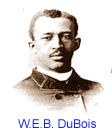|
|
Linda Chavez
Intellectual-ghettoes in the name of diversity
MAYBE IT'S El Nino, but something is surely clouding the judgment of California educators.
First, it was the San Francisco school-board member who proposed earlier this month that schools adopt a  racial quota for authors on the required high-school reading list. Board member Keith Jackson's proposal,
which mandates that at least seven of the 10 books on the list be written by non-whites, will be voted on March
24. Several teachers' organizations have since petitioned the state to revise its recommended reading list to
include more minorities, too, even though 35 percent of the authors on the current list are non-whites.
racial quota for authors on the required high-school reading list. Board member Keith Jackson's proposal,
which mandates that at least seven of the 10 books on the list be written by non-whites, will be voted on March
24. Several teachers' organizations have since petitioned the state to revise its recommended reading list to
include more minorities, too, even though 35 percent of the authors on the current list are non-whites.
Jackson and the teachers' groups argue -- in the name of diversity -- that since most California students are now members of racial and ethnic minorities, the books they read should be written by people like themselves.
Whatever happened to the notion that reading is supposed to expand our universe, not contract it so that everything we encounter is familiar? The universal truths we learn from great literature come not because we share the authors' race or sex, but because the stories and characters transcend such categories and teach us something enduring about the human condition.
I remember the first book I checked out of the Denver library soon after I moved there when I was nine. The book, written almost 100 years earlier, was "Heidi," by Johanna Spyri -- the story of a Swiss girl who lived in the Alps with her beloved grandfather until she was abruptly taken away by a greedy aunt to serve a wealthy family in Frankfurt. Every afternoon for weeks, I'd curl up in the window seat in my parents' attic apartment and be transported across the seas to an unfamiliar time and place, peopled by characters who looked nothing like me.
Today's diversity police no doubt would be horrified at the implications of an urban, Mexican-American child identifying with a fair-haired little girl skipping through the Alps. But Heidi's struggles with homesickness and separation from her dear grandfather helped ease the pain I felt those first lonely weeks after I moved to Denver.
Books opened up new horizons to me and were my constant companions throughout childhood. My father, who had only a ninth-grade education, took me almost weekly to the library and introduced me to his favorite authors, including Fyodor Dostoevski, Leo Tolstoy, W. Sommerset Maugham and John Steinbeck. When I was 13, he bought me a set of the Great Books of the Western World, where I encountered Aristotle and Aquinas, Shakespeare and Cervantes, Adam Smith and John Locke for the first time. It took him years to pay for those books out of the money he earned as a house-painter. It was the best investment in my future he could possibly have made.
Thankfully, no one thought to tell me that the authors of such books were all dead, white males with whom I had nothing in common. No teacher suggested I'd be better off reading books by second-rate authors who happened to share my ethnicity or gender. It never occurred to my father or me that the Great Books were not a part of our intellectual heritage and tradition. We believed they belonged to us as much as to anyone.
Imagine what the diversity crowd would say to the young W.E.B. Du Bois were he a student today. Du Bois, one of America's great intellectuals, was born in Massachusetts in 1868. At a time when few blacks, even in the North, managed to attend high school much less college, Du Bois graduated from Harvard University in 1890.
At the age of 14, he was already reading the poet Virgil, in Latin. As a sophomore in high school, Du Bois saw a five-volume set of Lord Macaulay's "History of England." He "wanted it fiercely," he later wrote, and paid for it on the installment plan, 25-cents-a week -- his entire salary. From the Victorian Englishman Macaulay, Du Bois learned a vivid writing style and a love of history that no doubt influenced his later work, including "The World and Africa," an encyclopedic look at the role Africa played in world history.
What both my father and Du Bois knew -- and today's diversity mavens seem blind to -- is that you can't judge a
book by its author's race or sex. The tragedy is that now some educators would relegate young black, Hispanic
and Asian children to an intellectual ghetto they might never escape, all in the name of
3/11/98: Be careful what you wish for ...
3/4/98: The Press' Learning-disability
2/25/98: 50 States Are Enough!
2/18/98: Casey at the Mat
2/11/98: The legal profession's Final Solution
2/4/98: Faith and the movies
1/28/98: Clinton, Lewinsky, and Politics Vs. Principle
1/21/98: Movement on the Abortion Front
1/14/98: Clones, Courts, and Contradictions
1/7/98: Child custody or child endangerment?
12/31/97: Jerry Seinfeld, All-American
12/24/97: Affirmative alternatives: New initiatives for equal opportunity are out there
12/17/97: Opening a window of opportunity (a way out of bilingual education for California's Hispanic kids)